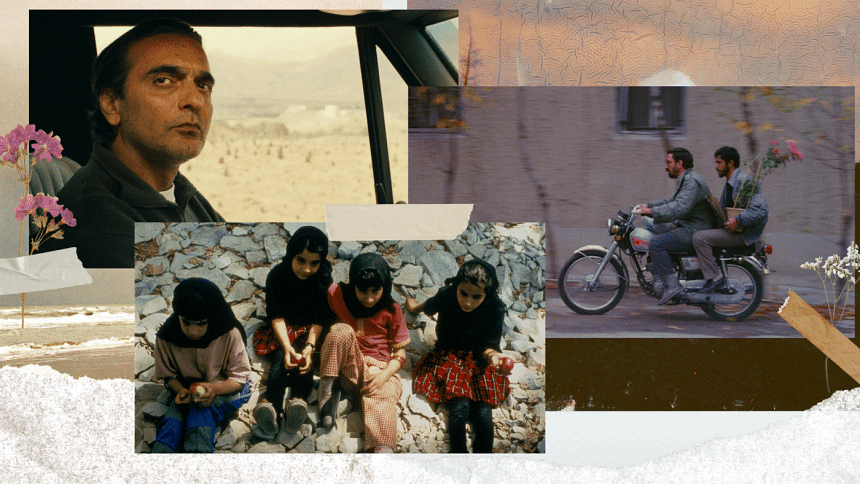Movies from Iran: Where realism meets elegance

Everyone in the universe needs to know about my three-week binge on Iranian films and the pristine emotional depth they hold.
The movies may be agonisingly slow-paced and minimal, however, there is a reason behind their simplicity. Prior to the Iranian Revolution, filmmaking in Iran faced fewer restrictions compared to the current moviemaking climate, where directors must work around several religious mandates on music, physical interactions, and attire shown on screen.
Yet these movies are considered to be the epitome of exemplary storytelling. Allow me to share.
Ordinary people in extraordinary circumstances
One of the most popular directors in Iran is Abbas Kiarostami and, out of his expansive filmography, I took the time to watch only a few. A blatant injustice I will admit but one that I expect to overturn eventually.
My epiphany, however, comes from pinning down the character trait that is embedded in all his protagonists – novelty brought by life's predicaments. The more I pondered over his characters, the more it became apparent that extraordinary folks exist in our day-to-day life, hidden in plain sight. It could be any one of us. Only time will tell if our innate uniqueness will ever be tested and be brought out to the world.
Movies reflect reality through fiction
This may be an odd thing to say but not when we are talking about movies like Close-Up by Kiarostami and The Apple by Samira Makhmalbaf. These movies blur the lines between fiction and reality in the most captivating ways.
For instance, Close-Up seamlessly zigzags the audience's attention between a courtroom scene and re-enactments of the real-life arrest of the protagonist of the film. The Apple tells the story of two children who are allowed to reacquaint themselves with the outside world after enduring a gut-wrenching confinement of twelve years by their parents. We may lose ourselves in the immersive stories and forget that what's being shown is not always real. However, these movies captivate us because art indeed imitates life.
Existential crises can be a good thing
This will sound like a motivational speaker's one-liner but bear with me – the sun indeed rises even after the darkest nights. What prompted this painfully cheesy statement? The movie Taste of Cherry which carries a concept as heavy as self-harm in a way that excuses the viewers from having to sit through heavy emotional content. The most important message this movie offers is that our darkest moments can bring us to the greatest adventure of our lives but we must be bold enough to seek it.
The profound lessons I have learned from these films transcend time and culture. Nevertheless, it is an injustice to constrict them to brief descriptions. Instead, like some gallant heroine who is destined to lead others to experience the sweetness of living with introspection, I will leave this message: When in need of a heart-touching thoughtful film that may or may not leave you in tears, know that Iranian movies will never disappoint.
The writer of this article is currently recovering from the emotional override of watching too many beautiful films. Send her your thoughts and prayers to [email protected]

 For all latest news, follow The Daily Star's Google News channel.
For all latest news, follow The Daily Star's Google News channel. 









Comments